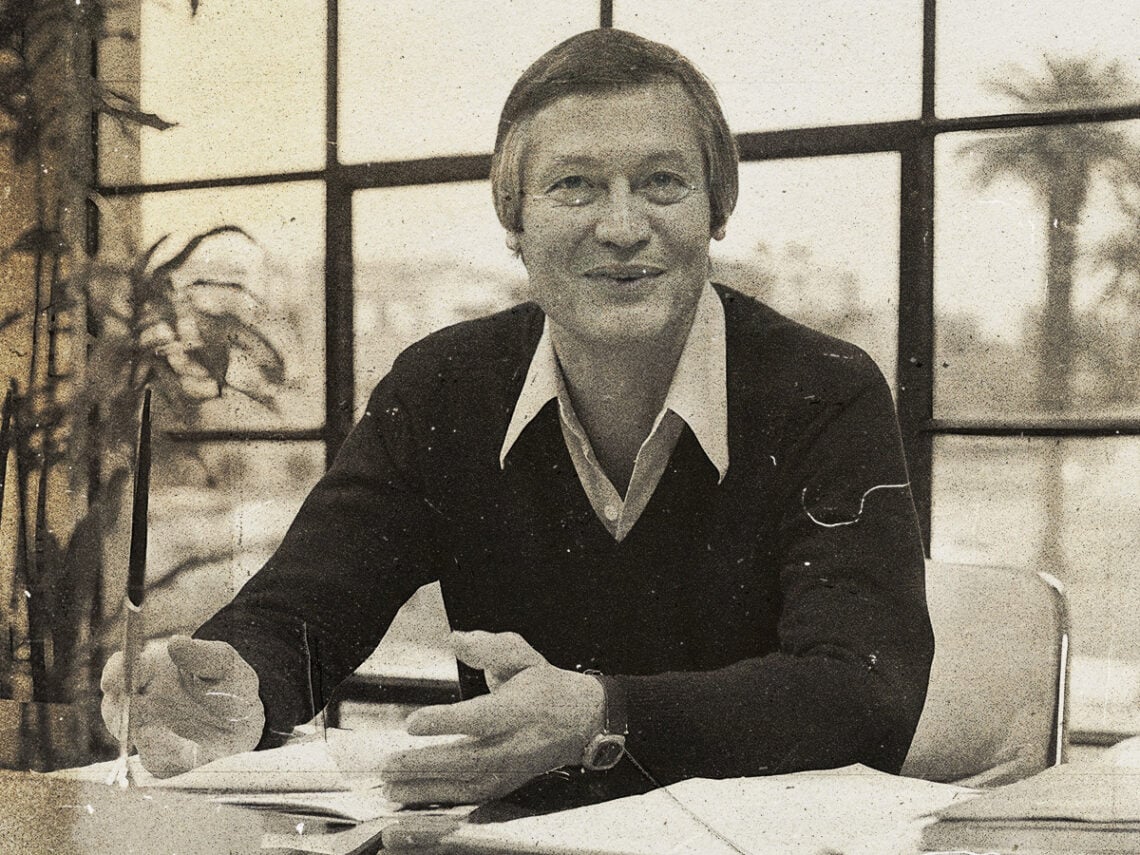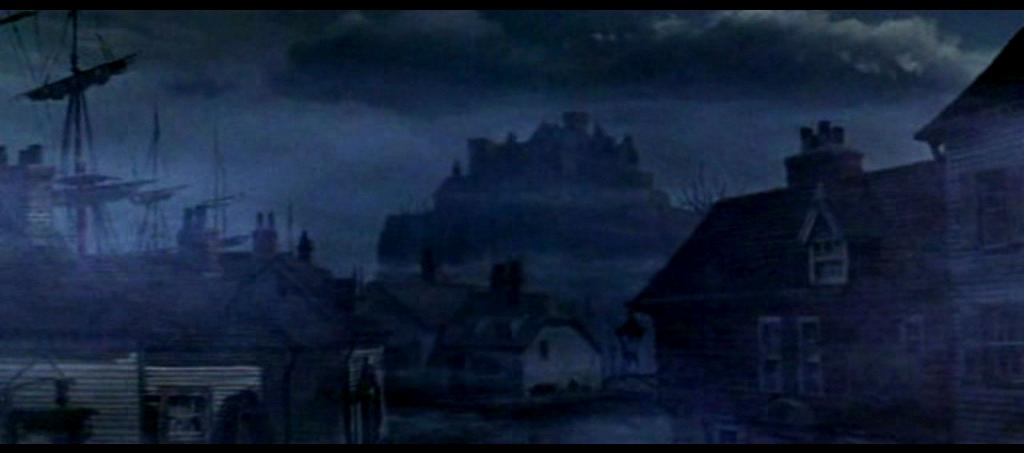Saying Goodbye to Roger Corman
 Last week we lost a legend. Roger Corman died two years shy of his 100th birthday. Known as the B-movie king, Corman’s filmography is extensive. He produced hundreds of films and contributed significantly to the horror genre. So I thought I would review one of his films as a sort of tribute.
Last week we lost a legend. Roger Corman died two years shy of his 100th birthday. Known as the B-movie king, Corman’s filmography is extensive. He produced hundreds of films and contributed significantly to the horror genre. So I thought I would review one of his films as a sort of tribute.
I’ve seen several but still not many Corman films, considering the mammoth list of films credited to his name. Of the ones I’ve seen, they make their markings all over the likeability scale. I didn’t care for The Undead, for instance. I am most familiar with his films reimagining to stories of Edgar Allan Poe, of which there are eight. The Raven has very little in common with the themes of Poe’s famous poem for which the film was made. It is a fun film and just downright silly.
I loved House of Usher and The Masque of the Red Death. Both are somewhat true to their original stories, but in each case, the figurative concepts with these tales morph into literal, tangible phantoms once the camera captures them. I have reviewed both these Poe tales, and yet, I have not reviewed these corresponding films of Corman. My excuse to myself was they were not “haunted-housey” enough. But that’s a weak excuse. If they were haunted- housey enough in print, wouldn’t they be haunted-housey enough in film? So I guess in truth I just never got around to it.
Guess what? I’m still not getting around to reviewing those films. Instead, the film I am choosing to review is The Haunted Palace. I figure, you know, it’s got the phrase “haunted (insert the name of a domicile here)” in its title, so…
Some will argue that despite the film’s title, it’s not a haunted house film. Their views are not without merit. But I suggest it is. There is a creepy castle with portraits and winding, stone staircases. There are large fireplaces and secret passages. There is an overall gothic flavor to this film. Within Gothic literature, something that is “haunted” can simply mean being possessed with troubling things that linger. Linger they do in this film. Finally, the movie’s called “The Haunted Palace” so contrary to what I wrote earlier, I shall not “despite the film’s title!”
THE HAUNTED PALACE

“Haunted, not by ghosts. By fear, by guilt, by memory of a particular night”
This line is spoken by the village doctor. Played by Frank Maxwell, he is explaining to a couple that is visiting the town of Arkham why their presence is upsetting the locals. I don’t know why these two visitors should have been so perplexed by their unwelcoming ways. After all, the male counterpart of this couple, Charles Dexter Ward, is played by the great Vincent Price and he’s running his mouth off about inheriting the creepy palace that stands at the top of the hill overlooking the town. Vincent Price in a haunted house overlooking the town! That is never a good thing for characters in a movie.
As it turns out, one hundred years prior, a necromancer named Joseph Curwen lived in that palace. He had a thing for hypnotically seducing young ladies of the village to the castle where he would force them to mate with the elder gods. The villagers didn’t take too kindly to this, so they tied the Joseph to a tree and burned him alive. Before he succumbed to the flames, Joseph cursed the village. He also vowed to one day return from the dead and have revenge. Necromancers will do that; return from the dead. Low and behold, one hundred years later, Curwen’s ancestor comes to town. This, of course, is Charles Dexter Ward. Vincent Price plays both Curwen and Ward. The portrait of Curwen that hangs in the castle looks exactly like Ward (well of course it does, it’s a drawing of the same actor). So naturally, the townspeople are freaked out. They believe in the curse. For proof, they look at their children. So many are born with deformities.
Throughout the movie, we see Price as the congenial Ward slowly surrender to the wretched personality of his late ancestor Curwen. The omen bares out. Curwen’s soul takes possession of Ward. Price is brilliant during these personality changes. With slight changes of facial expressions, with fluctuations in vocal inflection, he brings these characters to life. At one point in the film, with his wavering of expressions and tone, we aren’t sure who he is at the moment, which is the whole point of the scene.
This film is based on the works of two classic authors of horror: Edgar Allan Poe and H.P. Lovecraft. The title, The Haunted Palace, is derived from a poem of Poe’s. It was incorporated into Poe’s story The Fall of the House of Usher. To be honest, it’s not the easiest poem to comprehend. It’s not that long and you can read it in its entirety here:
As I do so often, when I’m clueless about the meaning of something, I see what good ol’ Wikipedia has to say on the subject.
The poem is about a king from the days of yore; content, dignified and wise until the great assault. Assault of “evil things in robes of sorrow, assails the monarch’s high estate”
It is implied the king has gone mad. The assault, perhaps, are the thoughts, emotions, and perceptions that exist to drive one insane. Thus, the palace referenced by in the title, is actually the king’s own head. I find this an intriguing concept. There is no scarier haunted house than the head that houses a troubled mind. I’ve thought of similar analogies but of course, Poe always beats me to these concepts, rendering me a useless plagiarizer. (Of course he had the advantage of living long before I was born.)
The story itself is based on H. P. Lovecraft’s The Case of Charles Dexter Ward. I have not read it, but according to my friend Wikipedia.
The story is about an escapee of a mental asylum, Charles Dexter Ward. He seeks out the grave of his long dead ancestor Joseph Curwen, a mass-murder and necromancer. Like his forefather, he too wants to resurrect the dead, and there is no better person to resurrect than the master resurrector himself.
The movie itself, like most Corman movies based on literature, only loosely resembles the originals. Unlike the Poe poem, there are no kings. Unlike the Lovecraft story, Curwen isn’t kidnapping women. But –
- A story of a man losing his identity within the walls of a stone, gothic castle. How very Poe!
- A tale of a necromancer seeking to mate captured women with the elder gods. How very Lovecraft!
In their own way, Corman and screenwriter Charles Beaumont capture the essence of the works of these two authors.
I must confess: this is not my favorite Corman film. I like House of Usher and The Masque of the Red Death more (both with Vincent Price! If I’m not mistaken, all of Corman’s Poe films feature Price). But it’s an “okayish” kind of film.
Rest in Peace, Roger. You worked hard down here on earth. All your many productions are a testament to that. So please, rest. You have earned it.